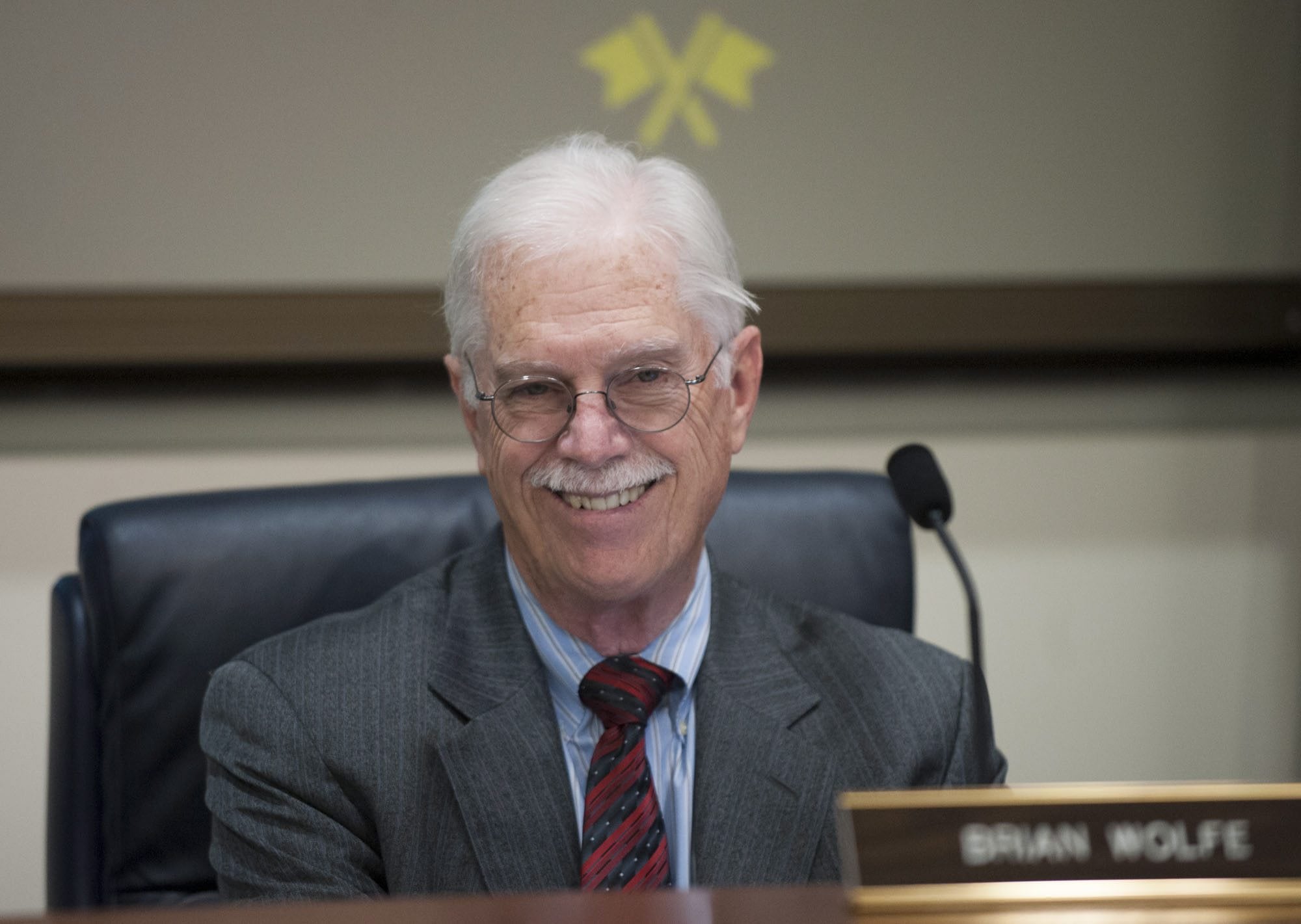The country’s largest proposed rail-to-marine oil terminal may face another vote by the Port of Vancouver commissioners this year — and this time success doesn’t seem so certain.
The deadline for Vancouver Energy to get “all necessary licenses, permits and approvals” for the terminal is Aug. 1, according to the lease with the port. But with state regulatory hearings on the project set to last until July 29, meeting that goal is all but impossible.
So an extension, an amendment or some form of port action may be needed to keep the lease agreement alive.
Based on past votes and stated preferences, Commissioner Jerry Oliver would probably vote in favor of perpetuating the lease, and Commissioner Eric LaBrant, who joined the commission in January after running an anti-terminal campaign, would oppose it.
But late Thursday, Commissioner Brian Wolfe told The Columbian that he hadn’t made up his mind about how he might cast another vote.
“Am I prepared to make a decision on it? No,” Wolfe said. “I honestly don’t know; there are so many variables to consider.”
Wolfe’s uncertainty turns what was a 3-0 decision nearly three years ago into a big maybe.
“It was and will remain a really hard decision between economic development and the environment, in my mind,” Wolfe said.
The state Energy Facility Site Evaluation Council is currently finalizing its environmental impact statement for the project, which with adjudication hearings this summer is one of the last steps it must take before making a recommendation on the 360,000-barrel-per-day terminal to Gov. Jay Inslee.
Before the governor even gets the chance to weigh in on it, oil terminal opponents have called for port commissioners to reconsider the lease or cancel it outright, a familiar refrain at port meetings for many months.
Under terms of the 10-year lease approved in 2013, early termination comes without “further cost or obligation” if the project isn’t approved and permitted within three years — the Aug. 1 deadline.
Even if the port isn’t forced to take up the lease as the deadline approaches — language is unclear whether action is needed — the port now has the option to get out of it without penalty.
“That language, as confusing as it is, is intended that if the process failed or they decided to not go forward that we had a way out to lease the ground to someone else,” Wolfe said.
In another affront to the port’s lease with Tesoro Corp. and Savage Cos., which operate as Vancouver Energy, the state Supreme Court on Wednesday agreed to hear a challenge to the Port of Vancouver’s oil terminal lease.
“If we were to prevail at the Supreme Court, we believe the remedy the court should give us is voiding the lease and asking the Port of Vancouver to make a new decision on the lease in light of the information in a final environmental impact statement,” said attorney Miles Johnson with Columbia Riverkeeper, which joined the Northwest Environmental Defense Center and the Sierra Club in filing a suit against the port in 2013.
The groups argue that the port broke state law when it entered into a binding lease before the environmental review was final.
Two lower courts have disagreed with that assertion, however, saying the state evaluation council and its governing laws supersede State Environmental Protection Act rules.
Court of Appeals Judge Bradley A. Maxa wrote that the port is “exempt” from having to finalize an environmental impact statement before entering into a lease, since the evaluation council is the sole agency in charge of the review and permitting process.
“Our legal counsel concurred it would be a waste of time and money to do a SEPA review when (the council) was going to do it in spades,” Wolfe said Thursday.
Columbia Riverkeeper and others are hoping the state’s high court decides otherwise.
No hearings have been set yet in the case, which could drag on longer than the state approval process, rasing another set of issues.




